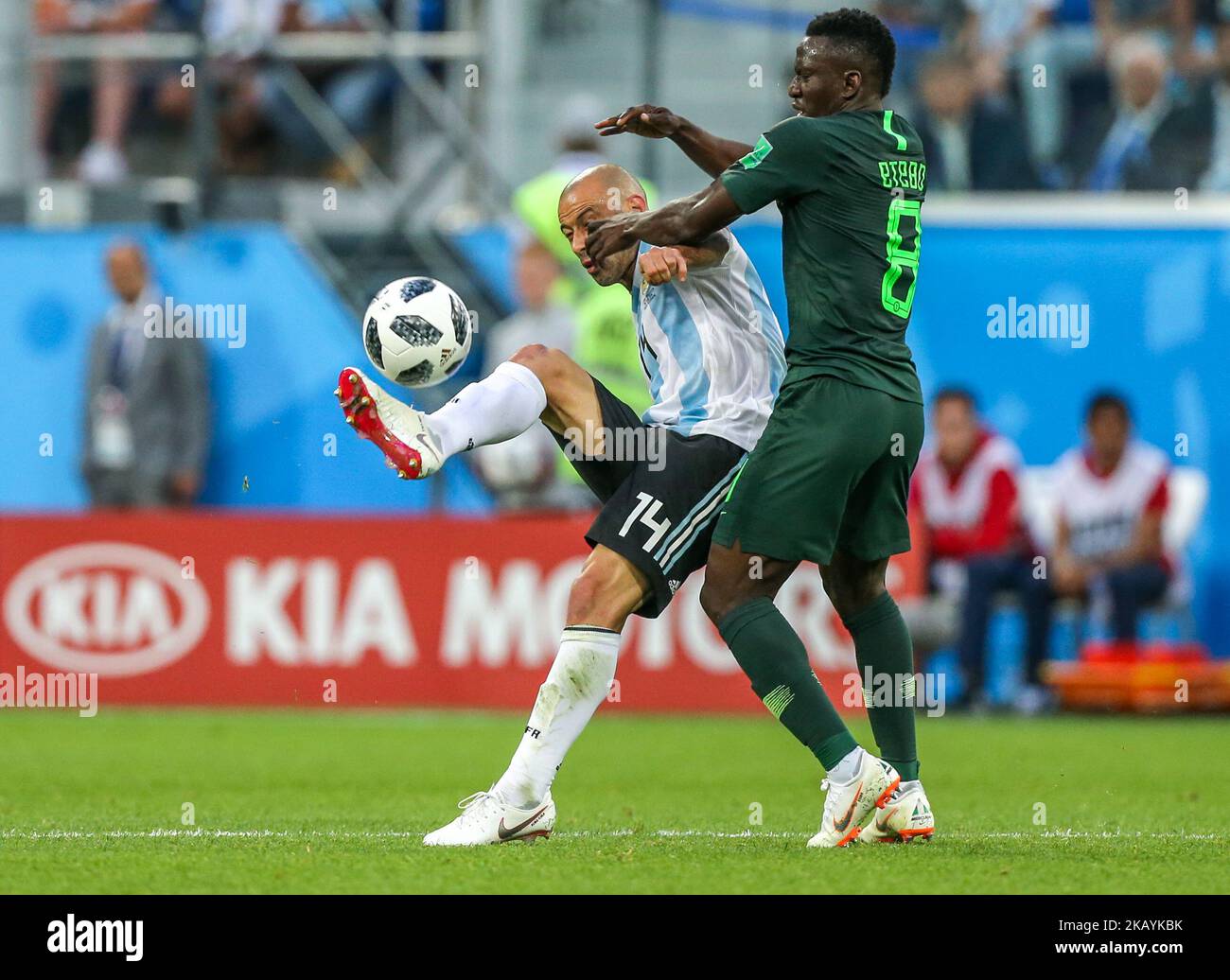This company has no active jobs
How Started Soccer To Nigeria: The Origins Of Soccer In Nigeria
A massive 67% of Nigerians watch Football, which demonstrates how much the sport influences Nigerian culture. Football’s journey in Nigeria began over 100 years back, shaping the nation’s sporting landscape.
Football in Nigeria go back to the early 1900s. British colonisers brought the sport to the nation in 1904. The very first recorded football match occurred that exact same year, kicking off Nigeria’s abundant footballing history.
By 1950, Football had ended up being Nigeria’s national video game. Its fast rise resulted in many clubs and associations forming in the early 1900s. This development increased Nigerian pride and helped inspire political freedom movements.
Nigeria’s football legacy now reaches beyond its borders. Over the years, the country has actually produced world-class talent, and Nigerian youth groups have actually won the FIFA U-17 World Cup five times.
The Super Eagles, Nigeria’s national team, are a force in African Football. They frequently qualify for substantial competitions and make their mark globally.
The British Colonial Introduction of Football to Nigeria
Football showed up in Nigeria throughout the British colonial age. It quickly captured the hearts of locals, marking the start of a rich footballing custom in the country.
The First Football Match in 1904
The first football match in Nigeria happened in June 1904. It was between Hope Waddell Training Institution and the team of HMS Thistle. The Nigerian team won 3-2, sparking an across the country passion for the sport.
Hope Waddell Training Institution vs HMS Thistle
I hope the Waddell Training Institution in Calabar played a crucial function in early Nigerian Football. Their victory over HMS Thistle’s team revealed the talent of Nigerian gamers. This match set the stage for Football’s growth in the country.
Early Football Club Formation (1906-1932)
After the 1904 match, Football’s appeal skyrocketed. From 1906 onwards, early football clubs started forming, and this grassroots motion spread the sport throughout Nigeria.
The Lagos District Amateur Football Association (LDAFA) was developed in 1932. The LDAFA marked the start of organised Football in Nigeria and paved the way for the sport’s future success nationally and worldwide.
Who Introduced Football in Nigeria
Football got here in Nigeria in the early 20th century. British colonisers brought this cherished sport to the West African country. It quickly became an enthusiasm that formed Nigeria’s sporting landscape for generations.
Function of British Colonisers
British colonisers played a crucial role in Nigeria’s football history. The very first tape-recorded match occurred in June 1904. Hope Waddell Training Institution dealt with the crew of HMS Thistle.
The Nigerian group won 3-2. This success marked the start of an abundant football legacy in the country.
Formation of First Football Association
The Lagos District Amateur Football Association (LDAFA) was established in 1932. It prepared for organised Football in Nigeria, which paved the way for the Nigerian Football Association (NFA).
The NFA was founded in 1945. It became the national governing body for Football and manage its development throughout the nation.
Advancement of Local Football Culture
Football rapidly took root in Nigeria, ending up being the national sport by 1946. Its accessibility and basic guidelines helped it spread rapidly. Regional communities accepted the video game, forming their groups.
This grassroots interest laid the foundation for Nigeria’s future success. The country’s passion for Football grew, causing achievements on the international phase.
“Football ended up being more than just a sport; it evolved into an important Nigerian culture and identity component.”
The British colonisers’ intro of Football triggered a sporting transformation in Nigeria. Football’s journey mirrored the nation’s development from the first match in 1904 to the development of the NFA in 1945.
Today, Football remains an essential part of Nigerian life. It’s a testament to the sport’s enduring appeal and cultural significance in the country.
The Rise of Nigerian Football Administration
The Nigerian Football Association (NFA) was established in 1945. It played a crucial function in shaping Nigerian Football. In 1949, the NFA formed Nigeria’s first national football team.
In 1959, Nigeria signed up with the Confederation of African Football (CAF), which permitted it to take part in continental tournaments. Nigeria likewise became a FIFA member in 1960, signing up with the international football community.
The NFA, later on renamed the Nigeria Football Federation (NFF), organised national competitions. They produced the Nigerian Premier League and the Federation Cup, which ended up being the highlights of domestic Football.
Football associations throughout Nigeria flourished under the NFF’s assistance. They nurtured skill and promoted grassroots development. Expert Football began in 1990 with sixteen club sides getting involved.
“Our mission is to restore football development at the national level and repackage the league in line with international best practices,” mentions the Nigeria National League.
The Premier League was implemented in 2003. This move aimed to enhance domestic football requirements and attract more spectators and sponsors to national competitions.
Nnamdi Azikiwe’s Impact on Nigerian Football
Nnamdi Azikiwe, born in 1904 in Zungeru, Northern Nigeria, left an indelible mark on Nigerian Football. His influence shaped the nation’s sporting landscape. Azikiwe’s passion for sports originated from his diverse experiences and education abroad.
Establishment of Zik’s Athletic Club
In 1938, Azikiwe established Zik’s Athletic Club (ZAC) in Lagos. This club became a symbol of african cup of nations self-determination. ZAC played a crucial role in establishing Nigerian Football.
It provided a platform for young athletes to showcase their abilities. The club promoted regional skill and fostered a sense of national pride.
The West African Pilot’s Influence
Azikiwe’s paper, the West African Pilot, played a considerable role in popularising Football throughout Nigeria. It thoroughly covered local matches, group news, and player profiles. This limelights helped grow the sport’s fan base.
Football as a Tool for Independence
Azikiwe saw Football’s potential as a unifying force in the self-reliance motion. He utilized the sport to break down ethnic barriers, and Football became a symbol of Nigerian unity through his advocacy.
Azikiwe’s efforts connected Football to nationalism, contributing substantially to the sport’s growth and forming its role in modern-day Nigeria.
“Football is not simply a game; it’s a powerful national unity and identity tool.”
Nigeria’s Journey to International Football Recognition
Nigeria’s football journey took a considerable leap forward in 1960. The nation acquired FIFA membership, marking its entry into international Football. This turning point coincided with Nigeria’s self-reliance from British guideline.
FIFA Membership and First International Match
Nigeria’s first global match happened on 8 October 1949. They faced Sierra Leone and won 2-0 in a historic encounter. This victory triggered interest for Football across the country.
Early Continental Competitions
Nigeria debuted in the Africa Cup of Nations in 1963. The competition, hosted by Ghana, saw Nigeria facing tough challengers. These experiences showed important for the team’s development.
Nigeria’s determination paid off in 1973. They clinched gold at the All-Africa Games, marking their very first football association major continental success. 1976, they secured bronze at the Africa Cup of Nations in Ethiopia.
Nigeria’s football prowess grew in the 1970s. In 1978, they duplicated their bronze medal task in Ghana. 1980, Nigeria hosted and won its very first Africa Cup of Nations title.
Evolution of Nigerian Football Governance
Nigerian football governance has seen significant modifications and challenges because 1945. The Nigeria professional football league Federation has formed the country’s football landscape, and its journey has been intricate and transformative.
From NFA to NFF
The Nigeria Football Association began in 1945. It became the Nigeria Football Federation in 2008. This change intended to modernise the organisation’s structure.
In 2019, an expense was passed to recognise the NFF formally. It’s still waiting for governmental approval.
Development of League Systems
The NFF supervises 3 main leagues: the Nigerian Premier League, Amateur League, and Women’s League. These competitors form the foundation of Nigerian Football.
They foster skill and promote the sport nationwide. Nevertheless, obstacles like postponed seasons and location disagreements persist.
National Team Formation
Nigeria’s Super Eagles national team was formed in 1949. They’ve qualified for 6 FIFA World Cups and won three Africa Cup of Nations titles.
These achievements have actually boosted Nigeria’s standing in international Football. The Super Eagles’ success has put Nigeria on the worldwide football map.
However, Nigerian Football deals with continuous challenges. A research study revealed high levels of corruption in football governance. This affects agreement awards and gamer choice.
These issues highlight the requirement for reform. For the sport to prosper, openness in the Nigerian football administration must enhance.
Conclusion
Nigerian Football’s legacy showcases the nation’s strength and enthusiasm. It began in 1904 with Hope Waddell Training Institute facing HMS Thistle. Ever since, Nigeria has actually ended up being a powerhouse in African Football.
The sport’s development reflects the country’s journey from colonial rule to independence. It has promoted a sense of national identity and unity. nigeria professional football league‘s global football recognition is indisputable.
The Super Eagles’ gold medal at the 1996 Atlanta Olympics is an emphasize. Their outstanding FIFA World Cup performances likewise stand out. Nigeria has qualified for 6 World Cups.
In 1994, Nigeria attained its highest FIFA ranking of 5th, strengthening its put on the international stage. Nigerian Football continues to evolve with promising prospects.
Skills like Ahmed Musa and Kelechi Iheanacho shine in leading European leagues. This bodes well for the sport’s development. The Nigeria Football Federation guides the video game’s development.
Football’s enduring tradition in Nigeria influences upcoming generations and promises an amazing future for the sport. The beautiful video game remains a source of nationwide pride and unity.
FREQUENTLY ASKED QUESTION
Who introduced football to Nigeria?
British colonisers brought Football to Nigeria in the early 1900s. The sport quickly became popular and woven into Nigerian culture.
When was the first football match played in Nigeria?
The first taped football match in Nigeria took place in June 1904. Hope Waddell Training Institution bet the HMS Thistle crew. The Nigerian team won 3-2.
How did Football become Nigeria’s national sport?
Football’s easy rules and availability made it popular in Nigeria. By 1950, it was the nationwide video game, inspiring pride and flexibility movements.
What function did Nnamdi Azikiwe play in Nigerian Football?
Nnamdi Azikiwe, Nigeria’s first President, was essential in establishing Football. He began Zik’s Athletic Club in Lagos in 1938, and his paper, the West african cup of nations Pilot, linked Football to the self-reliance motion.
When did Nigeria join FIFA?
Nigeria ended up being a FIFA member in 1960, the exact same year it got self-reliance. This marked Nigeria’s main entry into international football governance.

What is the Nigerian Football Federation?
The Nigerian Football Federation (NFF) governs Football in Nigeria. It progressed from the Nigerian Football Association, developed in 1945. The NFF arranges national leagues and competitions, consisting of the Premier League and Federation Cup.
What major successes has Nigerian Football achieved?
Nigeria has actually played in 6 FIFA World Cups. The Super Eagles national team has actually won 3 African Cup of Nations. They’ve likewise won gold in the 2nd All-Africa video games.
- Address Mumbai, Maharashtra, India



